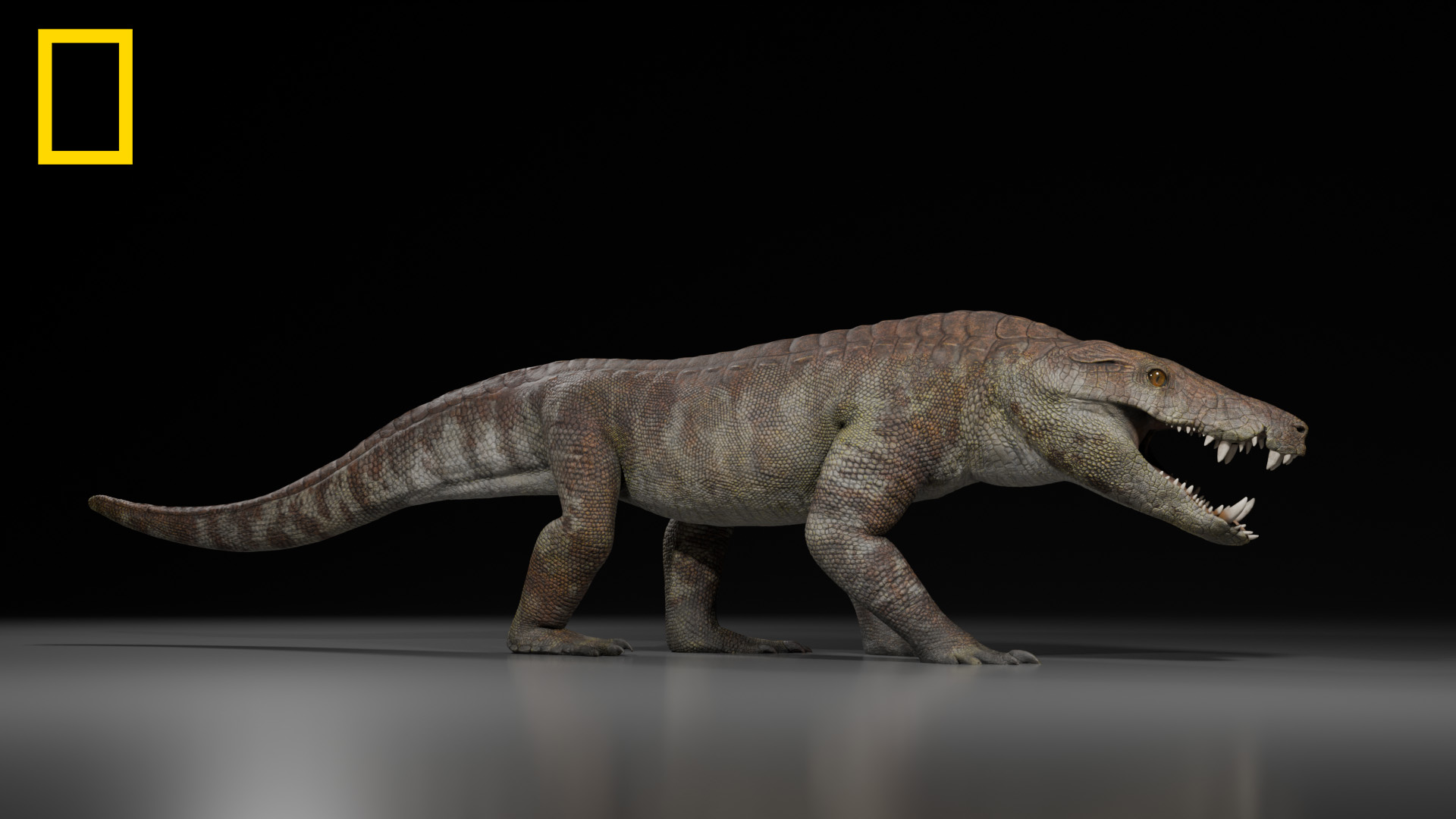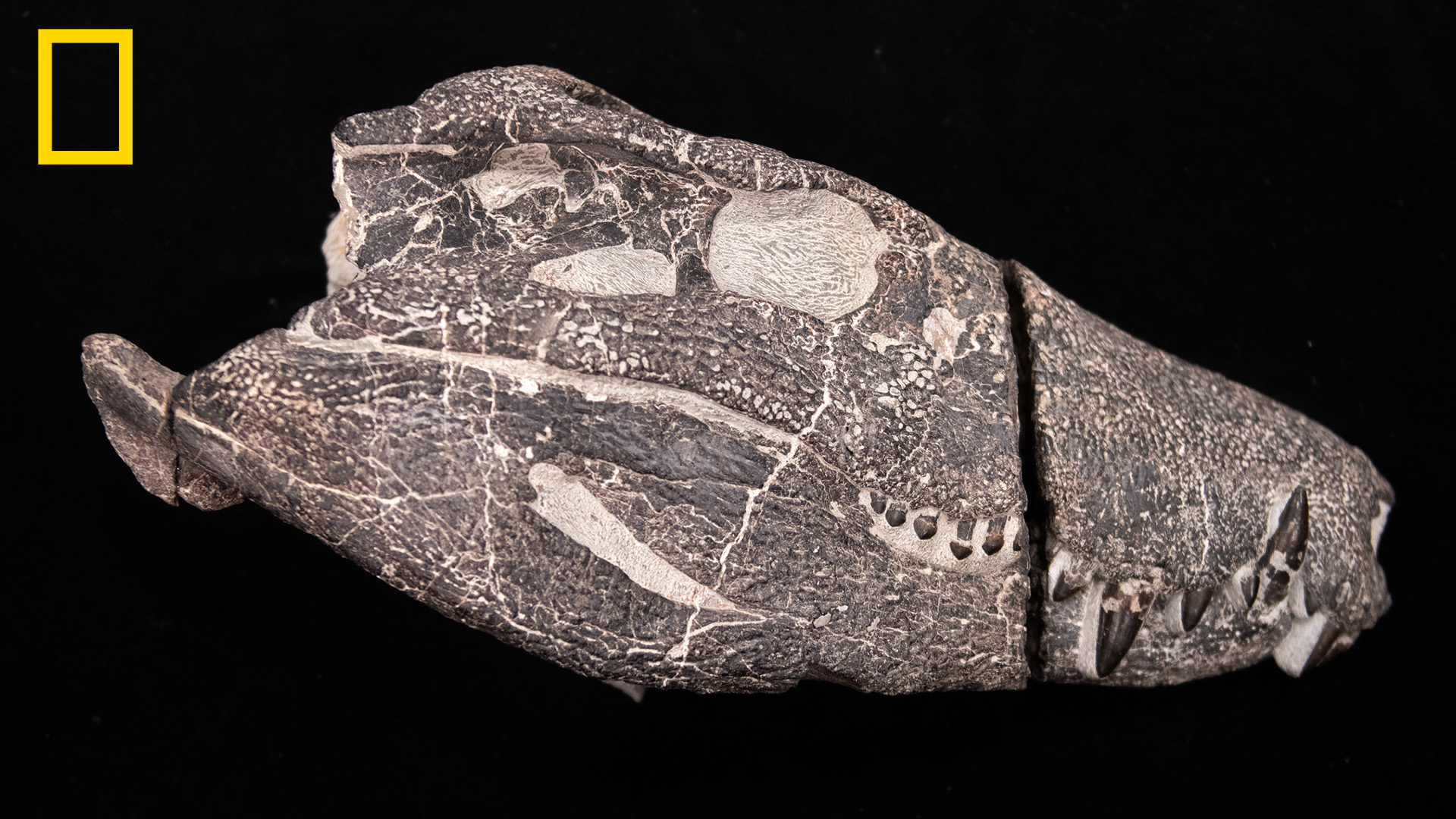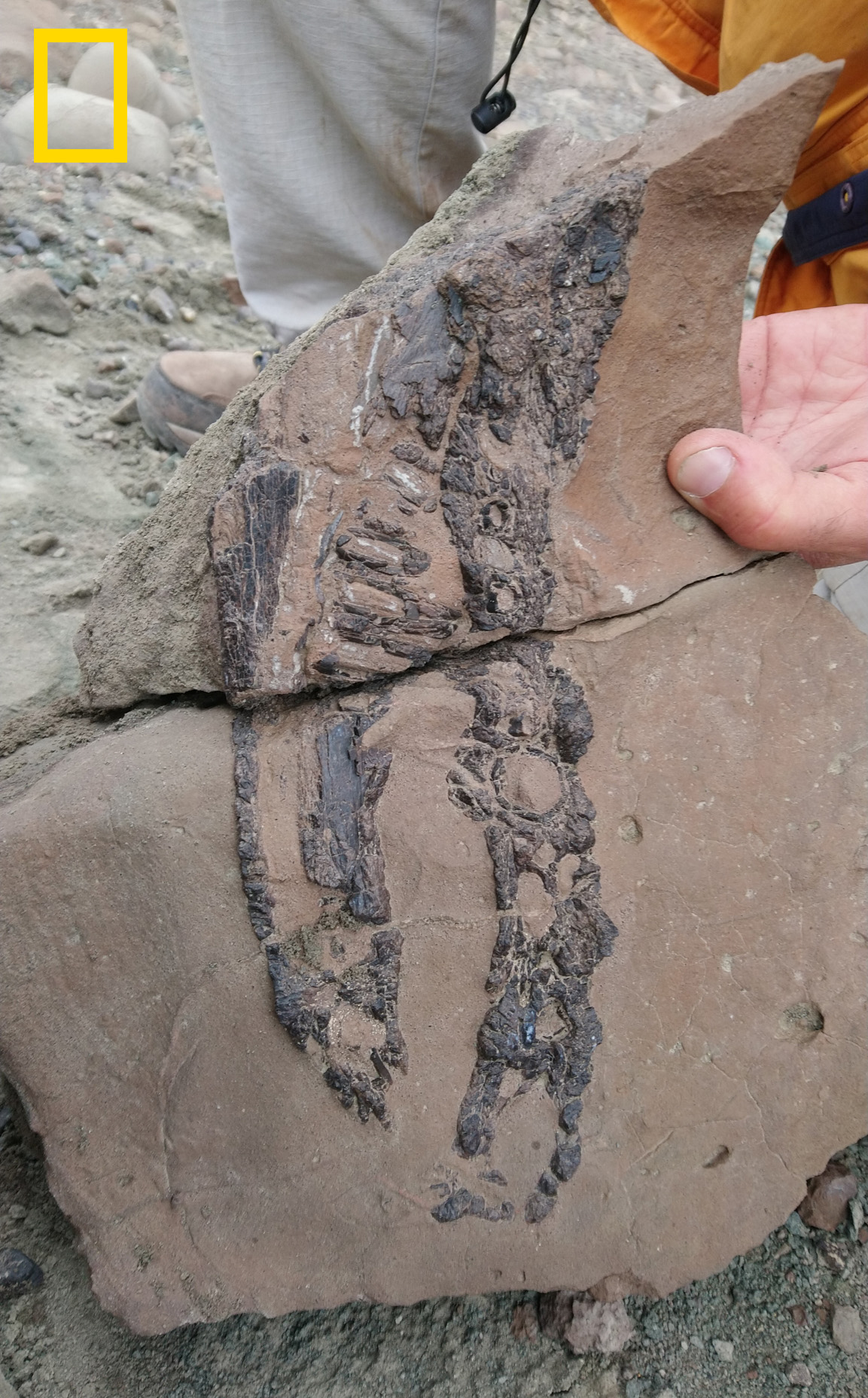A newly unearthed fossil has led experts to believe an ancient species of crocodile may have been an apex predator that hunted dinosaurs on land.
Paleontologist and National Geographic Explorer Diego Pol and his team helped to uncover the remains of Kostensuchus atrox, a previously unknown species of crocodile in Patagonia, close to Antarctica, that lived around 70 million years ago.

A visual reconstruction of a Kostensuchus atrox.
Gabriel Diaz Yanten / National Geographic
With its longer legs, scientists think this species may have been more land-oriented than the crocodiles of today, and potentially died around the Ice Age with the dinosaurs.
Experts say this croc was a hypercarnivore, which means it almost exclusively ate meat. It’s estimated to have measured 11.5 feet long and weighed about 550 pounds.

The fossil skull of Kostensuchus atrox, a 70-million-year-old relative to modern-day crocodiles.
Photograph By José Brusco / National Geographic
According to Pol, it had “teeth that are comparable to a T. rex” with massive jaw muscles that could “break you in two pieces with a single bite.”
Pol, along with his colleagues and researchers from Brazil and Japan, described the fossil discovery on Aug. 27 in the journal PLOS One.
Find more about the discovery at NatGeo.com.

Paleontologist Marcelo Isasi found the skull and jaw of Kostensuchus atrox embedded in a beige rock concretion.
Photograph By Federico Agnolín / National Geographic
Disney is the parent company of National Geographic and this station.
Copyright © 2025 KABC Television, LLC. All rights reserved.
Niko Travis is a dedicated health writer with a passion for providing clear, reliable, and research-backed information about medications and mental health. As the author behind TrazodoneSUC, Niko simplifies complex medical topics to help readers understand the benefits, uses, and potential risks of Trazodone. With a commitment to accuracy and well-being, Niko ensures that every article empowers readers to make informed decisions about their health.
